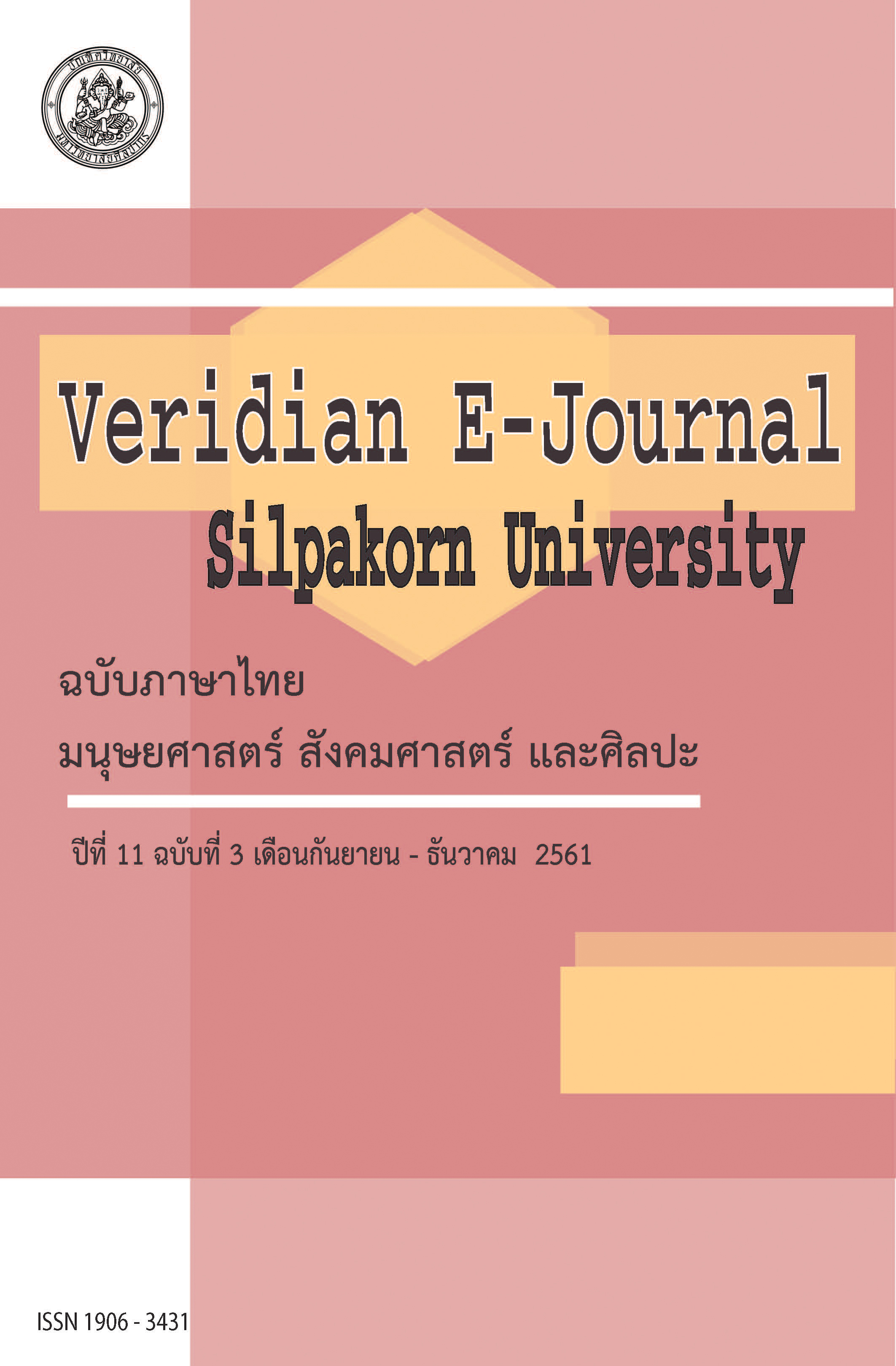กลยุทธ์การยกระดับคุณภาพการศึกษาโดยการพัฒนาชุมชนแห่งการเรียนรู้เชิงวิชาชีพครู (Strategy for Improving Educational Quality by Developing A professional Learning Community)
Main Article Content
Abstract
แนวคิดชุมชนแห่งการเรียนรู้เชิงวิชาชีพ (Professional Learning Community : PLC) มีความเป็นมาที่ยาวนาน ตั้งแต่จอห์น ดิวอี้ (John Dewey) ได้สร้างโรงเรียนทดลอง (Laboratory School) ขึ้นที่มหาวิทยาลัยชิคาโก้ ประเทศสหรัฐอเมริกา เมื่อปี ค.ศ. 1896 ระยะต่อมา Richard DuFour ได้วิจัยและพัฒนาและส่งเสริมให้เกิดชุมชนแห่งการเรียนรู้เชิงวิชาชีพครูในประเทศสหรัฐอเมริกามาตั้งแต่ปี ค.ศ. 1998 แนวทางการพัฒนาโรงเรียนเป็นชุมชนแห่งการเรียนรู้เชิงวิชาชีพครูมีหลายแนวทาง สำหรับบทความนี้มุ่งเสนอกระบวนการสร้างชุมชนแห่งการเรียนรู้ตามแนวทางของ DuFour, DuFour and Eaker ซึ่งมีอยู่ 5 ขั้นตอน คือ 1) การรวบรวมข้อมูลเชิงประจักษ์เกี่ยวกับระดับคุณภาพการเรียนรู้ของผู้เรียน 2) การพัฒนาแนวความคิดและกลยุทธ์การจัดการเรียนรู้ 3) การนำแนวความคิดและกลยุทธ์การจัดการเรียนรู้ไปใช้ 4) การวิเคราะห์ผลข้อค้นพบและความเปลี่ยนแปลงที่เกิดขึ้น และ 5) การประยุกต์ใช้ข้อมูลความรู้ใหม่ ๆ ในการปรับปรุงพัฒนาส่วนที่ยังไม่บรรลุผล และกระบวนการเรียนรู้ร่วมกันในชุมชนแห่งการเรียนรู้ของ Caine and Caine ซึ่งนำเสนอกระบวน การไว้ 4 ขั้นตอน คือ 1) การแบ่งปันอย่างมีลำดับ (Ordered Sharing) 2) การศึกษาสะท้อนผล (Reflective Study) 3) การตกลงที่จะทำร่วมกัน หรือทำวิจัยปฏิบัติการร่วมกัน (Commitment to Action Research) และ 4) การจัดระบบความรู้ใหม่ (Regrouping) อนึ่งโรงเรียนที่ได้ริเริ่มดำเนินการสู่การเป็นชุมชนแห่งการเรียนรู้เชิงวิชาชีพครูแล้วนั้น พบว่าเป็นประโยชน์ต่อการพัฒนาและยกระดับคุณภาพการศึกษาทั้งโรงเรียน (Whole School Improvement) ทำให้ผู้เรียนครู ผู้บริหารเกิดความเปลี่ยนแปลงเชิงบวก และเกิดประโยชน์ต่อการพัฒนาโรงเรียนอย่างยั่งยืน
The notion of Professional Learning Community: PLC has created for a long time since the laboratory school was established by John Dewey at University of Chicago, the United States of America in 1896.Later, Richard DuFour has researched and developed, and enhanced to create the Professional Learning Community in the United States of America since 1998. There are many approaches to develop the Professional Learning Community, this article has presented DuFour, DuFour and Eaker’s processes with the following five stages: 1) gathering evidence of levels of student learning improvement 2) developing ideas and strategies of instruction 3) implementing the strategies and ideas 4) analyzing the impact of discoveries and changes, and 5) applying the new knowledge for continuous improvement. Besides, Cain and Cain have represented with the following four processes: 1) ordered sharing 2) reflective study 3) commitment to action research, and 4) regrouping. Moreover, schools have actuated to be the Professional Learning Community, as a result, which are most useful for whole school improvement; those have been made learners, school teachers and school administrators who have been changing to positive changes, and gaining advantages towards sustainable school improvement.

